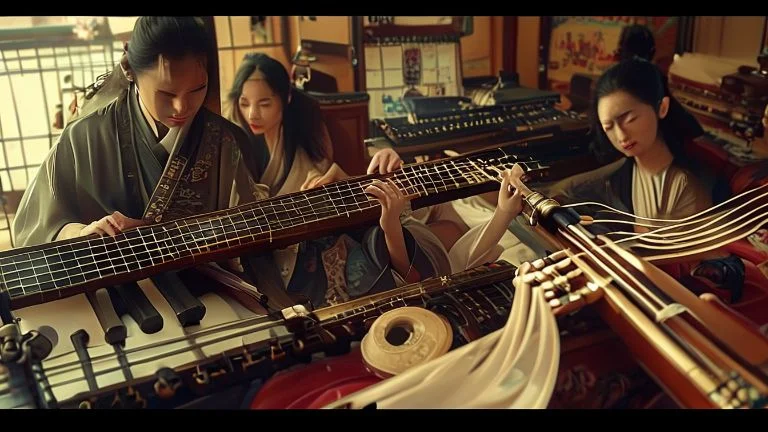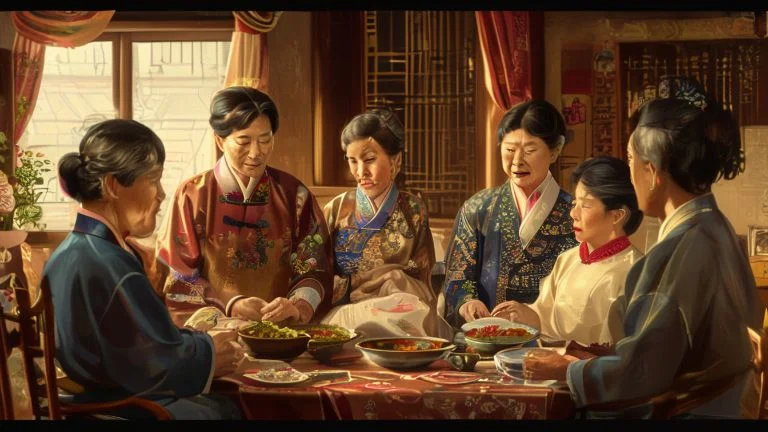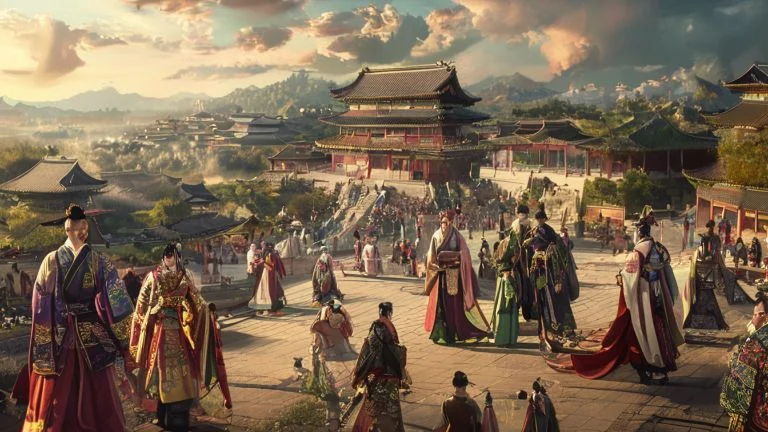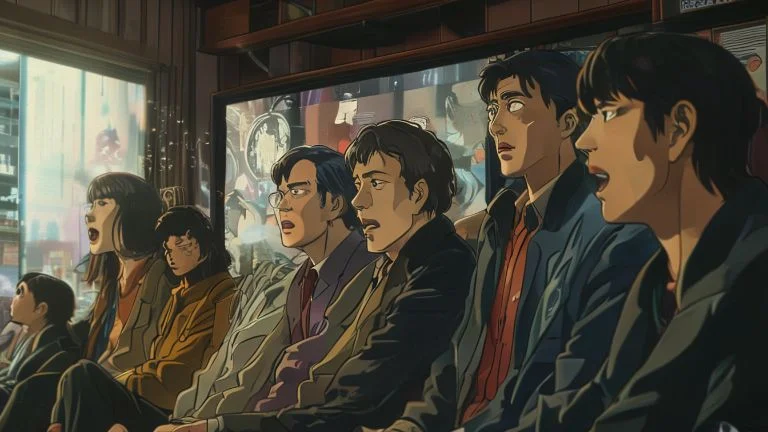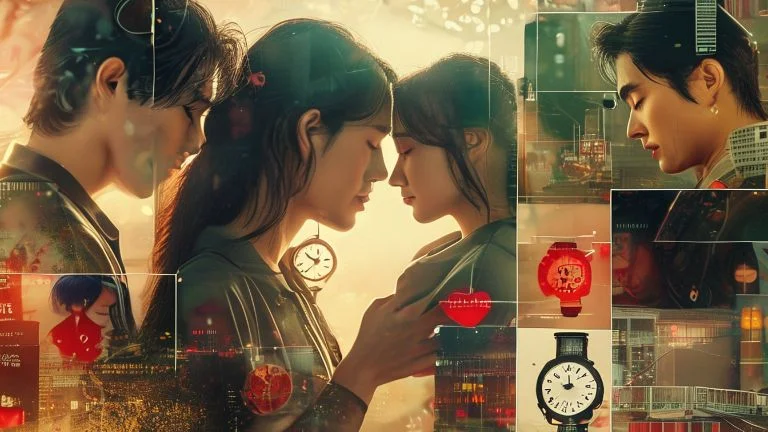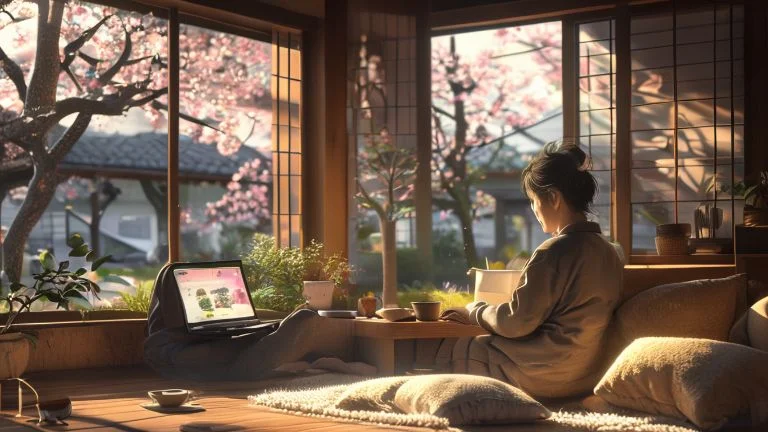Challenging Gender Norms in South Korean Dramas
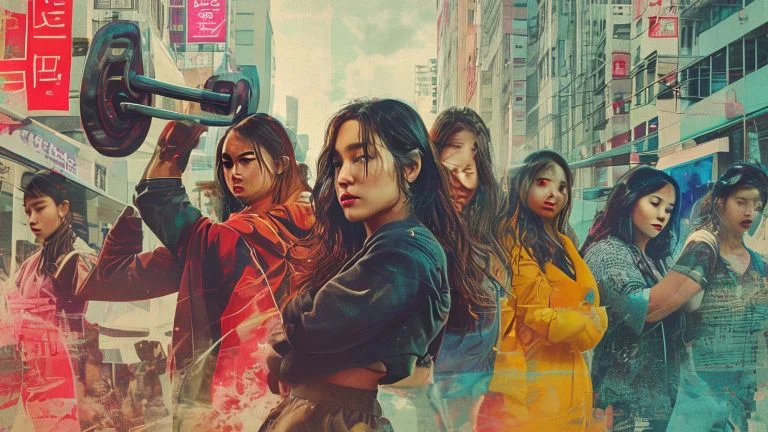
South Korean dramas have long been criticized for their stereotypical portrayal of gender roles, where women often conform to submissive, domestic archetypes and men embody traditional masculinity, including dominance and emotional restraint. However, over the past decade, an increasing number of series have begun contesting these norms, presenting characters with greater depth and reshaping narratives around gender equity. A landmark drama, "Strong Woman Do Bong-soon," offers a compelling example. The protagonist, Do Bong-soon, is a woman who possesses extraordinary physical strength, subverting usual female portrayals of fragility and passivity. While the romantic elements are present, the show centers her empowerment and her journey asserting agency both in her personal and professional life. It challenges conventional beauty standards by celebrating her muscular physique without reducing her femininity.
Another drama that defies typical gender depictions is "Her Private Life," where Sung Deok-mi, a talented curator at an art gallery, also leads a secret life as a dedicated fangirl of a pop idol. Instead of shying away from this duality, the drama embraces her passion and intelligence, allowing a complex portrayal of a woman who cherishes fandom culture — traditionally viewed as frivolous or childish — alongside a serious career. The male lead, Ryan Gold, is supportive without dominating the relationship, highlighting shifting dynamics in how masculinity is presented.
These dramas demonstrate the gradual dismantling of rigid gender binaries, incorporating women in roles that emphasize strength, ambition, and complexity. Moreover, they depict men who are nurturing and emotionally open, broadening definitions of masculinity beyond traditional expectations prevalent in South Korean media. The cultural implications of this shift are profound, especially given South Korea’s historically patriarchal society. By normalizing alternative gender expressions on screen, these dramas contribute to societal conversations about equality and respect in personal and professional realms.
Exploring further, "Misaeng (Incomplete Life)" offers insights into workplace dynamics that subvert stereotypes related to career success and societal pressure. The series centers on Jang Geu-rae, a young man who enters the corporate world without an elite educational background. Contrary to typical portrayals of success tied tightly to prestigious universities, the drama highlights perseverance, realistic struggles, and emotional vulnerability. Female characters, while traditional in some respects, display complex ambitions and face ethical challenges, offering nuanced images of women in business. The interactions across genders within office politics reveal undercurrents of power shifts and challenge hierarchical norms.
The impact of such dramas extends beyond entertainment. They influence public perceptions and contribute to altering ingrained beliefs about gender roles. Viewers find relatability and affirmation in characters who reflect real-world complexities rather than idealized stereotypes. These narratives encourage discourse on gender equality and empower audiences, particularly younger generations seeking representations that resonate with modern identities.
Breaking Class Barriers and Social Hierarchy
South Korean dramas often emphasize class distinctions, portraying characters within rigid social strata that mirror traditional societal hierarchies. Wealth, educational pedigree, and family background are recurrent determinants of characters' fates and relationship possibilities. Nonetheless, several recent series critically examine and challenge these established norms, offering narratives where characters transcend class boundaries, confront systemic inequalities, and redefine notions of success and happiness.
"Sky Castle," one of the highest-rated dramas in Korean television history, scrutinizes the obsessive pressures of elite educationalism and social status. It explores how affluent families manipulate systems and sacrifice ethical considerations for their children’s success, revealing the psychological and emotional toll such pursuits exact. The drama breaks conventional depictions by refusing to glamorize wealth or idealize privilege. Instead, it exposes the dark underbelly of materialism and the human cost of preserving social rank. Female characters hold significant influence, showcasing both vulnerability and ruthless determination, disrupting simplistic notions of women’s roles in elitist settings.
Equally transformative is "Itaewon Class," which centers on Park Sae-ro-yi, a young man who opens a bar in the diverse Itaewon district after facing social injustices including expulsion and personal tragedy. The series deliberately foregrounds characters from marginalized backgrounds, including people of different races, sexual orientations, and economic statuses. It confronts prejudice head-on and celebrates inclusivity and resilience. The female leads are portrayed as strong, independent, and multifaceted, steering their destinies instead of being defined by romantic subplots. The story illustrates economic mobility achieved through determination and ethical entrepreneurship rather than inheritance or nepotism, countering conventional class narratives common in K-dramas.
Consideration of how class and social status intersect with gender in these dramas enhances their critique of South Korean society. Both "Sky Castle" and "Itaewon Class" present female characters who challenge expectations placed upon them due to social class and gender, striving for autonomy in environments designed to limit their potential. These stories promote empathy and understanding by portraying struggles against structural barriers from a multiplicity of perspectives, inviting audiences to question entrenched social systems.
The table below summarizes key characteristics of select South Korean dramas that confront class stereotypes and social hierarchies:
| Drama | Class Stereotype Challenged | Key Themes | Female Representation | Impact on Society |
|---|---|---|---|---|
| Sky Castle | Elite social pressure and privilege | Education obsession, family dynamics, psychological strain | Women as power brokers in elite families | Critiques materialism and social competition |
| Itaewon Class | Marginalization and socioeconomic mobility | Discrimination, entrepreneurship, inclusivity | Strong, independent women in business and activism | Promotes diversity and challenges prejudice |
| Mr. Sunshine | Historical class divisions | Colonial history, rebellion, loyalty | Women as active participants in resistance | Revisionist portrayal empowering female roles |
Reimagining Family Structures and Relationships
Traditional South Korean dramas often rely on typical family dynamics—patriarchal households, filial piety, and marriage as a primary life goal, especially for women. Alongside this paradigm are conventions portraying romantic relationships within narrowly defined social norms, frequently emphasizing heteronormative frameworks and idealized couple dynamics. A significant trend in recent years is the revision of these familial and relational themes to incorporate varied family constellations, unconventional partnerships, and more realistic portrayals of human connections.
"Misaeng" subtly showcases non-traditional family concerns by focusing on adult children balancing filial expectations with self-actualization in contemporary urban environments. The drama depicts the emotional complexity of parent-child relationships without idealization, showcasing generational conflicts and repressed feelings. This approach speaks to the evolving nature of family ties in modern Korea, where shifting values challenge rigid deference traditionally expected from offspring.
More overtly, "Be Melodramatic" explores the lives of three female friends navigating careers, relationships, and parenthood outside typical frameworks. The drama reframes friendship as a chosen family, emphasizing emotional support systems beyond blood ties. Romance is depicted with nuance, often highlighting imperfections and individual growth rather than idealized love stories. The portrayal of single motherhood, divorce, and career aspirations captures growing societal acceptance of diverse life paths that deviate from conventional family ideals.
Notably, "Life" examines the healthcare sector while weaving in personal stories that highlight the complexity of familial responsibilities and moral ambiguities in caregiving roles. The drama does not shy away from criticism of societal expectations placed on individuals, including women, to juggle multiple roles effortlessly. It portrays characters facing dilemmas reflective of real-life challenges related to aging, illness, and workplace ethics, expanding the representational range beyond simplistic family dramas.
Below is a list of ways these dramas subvert traditional family and relationship stereotypes:
- Depicting female friendships as central emotional anchors alongside or instead of romantic relationships.
- Featuring single and working mothers as multifaceted protagonists rather than side characters.
- Showing flawed, non-idealized romantic partnerships with communication struggles and personal growth.
- Incorporating characters with diverse sexual orientations and unmarried partnerships.
- Challenging expectations of filial piety and traditional parent-child power dynamics.
By reframing family not just as a biological unit but as an emotional and social construct, these dramas articulate evolving cultural realities. They resonate with audiences who seek more authentic, relatable depictions of life amid rapid societal transformations.
Portrayal of Mental Health: Shifting Paradigms
Mental health remains a sensitive topic in South Korea, historically stigmatized and seldom addressed openly in mainstream media. Traditionally, K-dramas have largely sidelined psychological struggles or reduced them to superficial plot devices. However, the rising prominence of mental health narratives has led to more thoughtful, empathetic depictions, challenging stereotypes and encouraging destigmatization.
"It's Okay to Not Be Okay" stands as a milestone in this shift. The drama tells the story of Moon Gang-tae, a psychiatric ward caregiver, and Ko Moon-young, a children's book author with antisocial personality disorder. The narrative explores trauma, emotional scars, and healing processes with considerable depth and sensitivity. By interweaving fantasy elements with real-world psychological themes, the series humanizes mental illness, dispels myths about psychiatric disorders, and acknowledges the complexity of recovery journeys.
Similarly, "Flower of Evil" explores the psychological turmoil of a man hiding a dark past and the impact of trauma on family relationships. It challenges viewers to reconsider assumptions about perpetrators and victims, underscoring the long-term effects of childhood abuse and mental illnesses. Female characters are not merely victims but active agents seeking truth and justice, subverting stereotypes of helplessness.
These dramas employ diverse storytelling techniques to raise awareness, such as employing symbolism, flashbacks, and nuanced character development. They avoid didactic messaging, allowing viewers to engage empathetically and reflect on their own conceptions of mental health.
The table below compares essential elements of mental health portrayals in significant South Korean dramas:
| Drama | Mental Health Focus | Key Themes | Character Complexity | Social Impact |
|---|---|---|---|---|
| It's Okay to Not Be Okay | Trauma, personality disorders, healing | Emotional wounds, interpersonal connection | Multi-faceted protagonists with visible struggles | Increased mental health awareness and dialogue |
| Flower of Evil | Psychopathy, past trauma effects | Moral ambiguity, family secrets | Characters defying victim-perpetrator binaries | Encourages reconsideration of stigma |
| Kill Me, Heal Me | Dissociative identity disorder | Identity, acceptance, recovery | Complex protagonist navigating inner turmoil | Educational about mental health complexities |
Incorporating LGBTQ+ Narratives into K-Dramas
South Korean entertainment has long avoided or marginalized LGBTQ+ representation due to societal conservatism and censorship norms. Nonetheless, recent years have witnessed incremental progress with dramas cautiously integrating queer characters and themes, marking a vital step towards diversity and inclusivity. These portrayals, although still limited, present LGBTQ+ identities as relatable and multifaceted rather than caricatures or mere tokens.
One notable example is "Where Your Eyes Linger," a short drama that centers on a romantic relationship between two men. Rather than framing their relationship through tragedy or conflict, it explores youthful intimacy and emotional discovery with subtlety and warmth. The short format allows for a focused narrative balancing tenderness and realism within a conservative context.
In mainstream dramas, while explicit representations remain rare, subtext and nuanced characterizations have improved. For instance, "Reply 1997" included a subplot with a gay character portrayed sympathetically, a departure from earlier depictions rooted in stereotypes or comic relief. Such incremental visibility has opened conversations and increased awareness regarding LGBTQ+ issues.
Challenges remain due to social and regulatory barriers, but the Korean entertainment industry shows signs of gradual evolution. International streaming platforms have supported this trend by highlighting diverse voices and stories, encouraging writers and producers to explore new terrains.
Here is a list summarizing key factors influencing LGBTQ+ representation in South Korean dramas:
- Cultural conservatism hinders overt depictions but gradual openness is emerging.
- Web dramas and short formats provide more freedom for exploring queer themes.
- Positive portrayal contributes to normalization and reduces stigma.
- International audiences and streaming services pressure the industry towards inclusivity.
- Ongoing activism and social change fuel demand for authentic representation.
The progress, while incremental, reflects a broader global movement towards diversity in media, making South Korean dramas more reflective of modern social realities.
Use of Genre Innovation to Subvert Stereotypes
South Korean dramas benefit from genre hybridity, skillfully blending romance, thriller, fantasy, comedy, and social commentary. This creative flexibility enables the subversion of traditional tropes and stereotypes across multiple dimensions. For example, fantasy dramas often invert gender expectations or social norms by situating characters in extraordinary worlds where usual boundaries blur.
"Guardian: The Lonely and Great God (Goblin)" weaves a modern fantasy with romance and horror elements, featuring characters that defy conventional roles. The female lead, Ji Eun-tak, though initially vulnerable, grows into a proactive figure influencing supernatural events. Themes of fate, immortality, and redemption are explored alongside emotional depth and humor. The blending of ancient mythology with contemporary life invites viewers to question established narratives about destiny and identity.
Similarly, "Signal," a crime thriller involving time-crossing communication, disrupts the typical procedural drama mold by integrating emotional resonance and complex character backstories. The female detective portrayed is competent, assertive, and integral to solving cases, breaking the stereotype of women as mere side characters or victims within crime narratives.
Genre innovation facilitates the examination of societal issues under the guise of entertainment. It allows dramas to tackle heavy themes such as trauma, corruption, and injustice while maintaining audience engagement through suspense and emotional investment. This dual function enhances the storytelling impact and broadens cultural discourse.
Below is a comparative table outlining examples of genre innovation and stereotype subversion:
| Drama | Primary Genre | Subverted Stereotypes | Narrative Techniques | Audience Impact |
|---|---|---|---|---|
| Goblin | Fantasy, Romance | Female passivity, fate determinism | Mythological elements, nonlinear timeline | Emotional depth, fresh mythic perspective |
| Signal | Crime, Thriller | Gender roles in crime solving | Time-crossed communication, layered mystery | Heightened suspense with social critique |
| Stranger | Legal Thriller | Corruption normalization and male dominance | Detailed procedures, moral ambiguity | Critical acclaim for realism and complexity |
Role of Female Writers and Directors in Shaping Progressive Narratives
The increasing participation of female creators behind the scenes has arguably been a pivotal factor in the shift away from stereotypical depictions in South Korean dramas. Women scriptwriters and directors bring lived experiences and sensibilities that diversify narrative perspectives and character constructions. This influence manifests in more authentic dialogues, complex female protagonists, and nuanced explorations of themes such as gender, family, and identity.
Prominent figures like Kim Eun-sook, who wrote "Descendants of the Sun" and "Goblin," have been credited with infusing romantic dramas with deeper emotional insights and multidimensional characters. However, beyond star names, numerous emerging female writers focus explicitly on dismantling conventions, confronting misogyny, and promoting female empowerment through storytelling.
The presence of women in decision-making roles challenges patriarchal industry structures that historically favored male perspectives, thus encouraging narratives that resonate with wider audiences. Their contributions extend to genre diversification, incorporation of feminist themes, and representation of diverse family and relationship models.
Furthermore, female creators often emphasize character-driven stories rich in psychological realism. Their work has encouraged collaborations and produced critically acclaimed dramas that balance commercial appeal with cultural commentary. Through festivals, awards, and media recognition, their visibility is enhancing, gradually transforming industry norms.
International Reception and Influence of Progressive South Korean Dramas
South Korean dramas have witnessed unprecedented global popularity, significantly amplified by streaming platforms such as Netflix, Viki, and others. The international audience's growing appetite for content that challenges stereotypes has propelled the production of dramas portraying diverse, progressive themes. This reciprocal dynamic influences Korean entertainment industries to adopt riskier, more socially conscious storytelling approaches.
Dramas breaking traditional stereotypes have found resonance abroad for several reasons. Their universal themes—personal identity, social justice, mental health, and love—cut across cultural boundaries. Additionally, their respectful depictions of marginalized groups and critical examination of social issues appeal to global viewers seeking authentic narratives beyond Hollywood conventions.
This international attention also sparks dialogues about cultural specificity and representation. For example, "Itaewon Class" has been praised for confronting racial and LGBTQ+ issues, bringing Korean societal challenges into a worldwide spotlight. The reception encourages Korean producers to further engage with underrepresented themes, contributing to evolving cultural landscapes both domestically and internationally.
The following list outlines key effects of global influence on South Korean dramas that subvert stereotypes:
- Increased investment in diverse and socially relevant storytelling.
- Cross-cultural exchanges leading to more inclusive narratives.
- Empowerment of minority voices within Korean media.
- Expansion of audience demographics demanding authentic representation.
- Heightened critical discourse on traditional norms and media responsibility.
The global success of these dramas underscores their ability to transcend cultural confines, promoting greater understanding and acceptance worldwide.
FAQ - Top South Korean Dramas That Broke Traditional Stereotypes
What are some South Korean dramas that challenge traditional gender roles?
Dramas like 'Strong Woman Do Bong-soon' and 'Her Private Life' challenge traditional gender roles by portraying women with physical strength, independence, and complex personalities, as well as men who display emotional openness and supportive behaviors.
How do South Korean dramas address class and social hierarchies?
'Sky Castle' and 'Itaewon Class' critique established class divisions by focusing on the pressures of elite privilege and showcasing marginalized communities overcoming systemic barriers, offering narratives of social mobility through perseverance and ethics.
Are mental health issues portrayed realistically in K-dramas?
Recent dramas like 'It's Okay to Not Be Okay' and 'Flower of Evil' present mental health with depth and sensitivity, highlighting trauma, healing, and complexity, thus reducing stigma and fostering greater public awareness.
Do South Korean dramas include LGBTQ+ characters and stories?
While still limited, dramas such as 'Where Your Eyes Linger' and subplots in series like 'Reply 1997' have introduced LGBTQ+ narratives with empathetic portrayals, reflecting gradual progress toward inclusivity.
What role do female writers and directors play in changing K-drama stereotypes?
Female creators contribute vital perspectives that lead to richer, more authentic characters and progressive themes, challenging patriarchal industry norms and fostering female empowerment in storytelling.
South Korean dramas have progressively broken traditional stereotypes by portraying empowered women, challenging class divisions, addressing mental health, and incorporating diverse narratives including LGBTQ+ themes, driven by female creators and global audience demand.
South Korean dramas have evolved significantly, breaking free from traditional stereotypes related to gender, class, family, mental health, and social identities. Through diverse narratives, complex characters, and genre innovations, these series reflect a society in transition, inviting audiences to reconsider rigid norms. Female writers and international influence further drive this progress, creating media that resonates worldwide while promoting empathy and social awareness.

